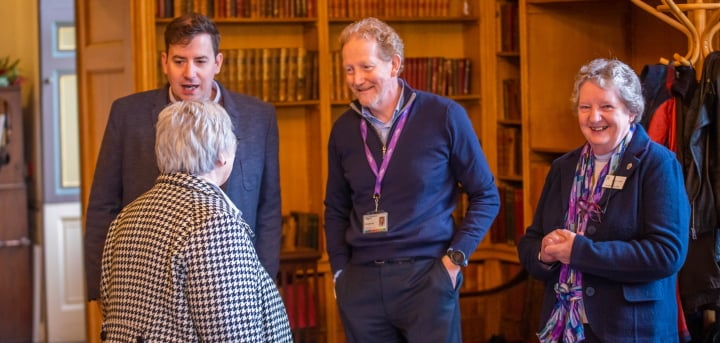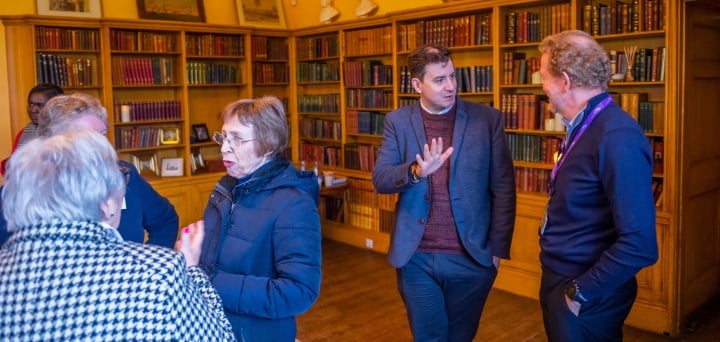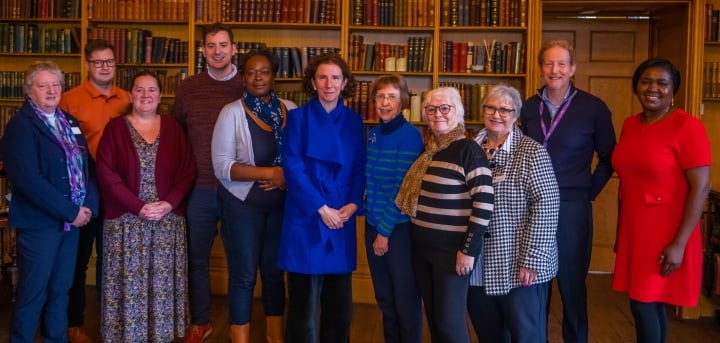Roundtable meeting in Northampton
Published on 11 December 2024 10:50 AM

Local MP and Government Minister host discussion of equality based issues
Christopher Duff, Chief Executive, was pleased to represent Age UK Northamptonshire at a roundtable meeting on Sunday 8th December, hosted jointly by Mike Reader MP for Northampton South and the Minister of State for Women and Equalities Anneliese Dodds MP.
The event at Delapre Abbey aimed to discuss and highlight equality based issues in the constituency, and was a chance for the local MP and the Government Minister to hear about the work and priorities of local voluntary organisations.

A 2019 report by the national charity Age UK shows that between 2017 and 2040 the population of people aged over 65 in the UK is projected to increase by 49 per cent. The numbers of people aged over 85 – the group most likely to need health and care services – is projected to rise even more rapidly, nearly doubling from 1.4 to 2.7 million over the same period. However, in recent years improvements in life expectancy and healthy life expectancy have flat-lined.

Representatives from other local charities and voluntary organisations at Delapre Abbey.
Most people experience the majority of years spent living with poor health after the age of 65, and can, on average, expect to spend around half of their later years living with a life-limiting health condition or disability. There is significant regional disparity between areas with the highest and lowest levels of disability-free life expectancy at 65, with over 2 year’s difference for men and 2 and a half years for women.
Around 15 per cent of people aged 65-69 experience difficulty with at least one Activity of Daily Living; amongst those aged 85 and over, this rises to 1 in 3. By 2040 the total number of disabled older people is projected to increase by 67 per cent to 5.9 million. Just over half of people aged 65-74 live with at least one long term health condition, increasing to nearly two thirds of those aged 85 and over. Meanwhile frailty affects 6.5 per cent of people aged 60 to 69, rising to 65 per cent of those aged over 90.
An ageing population means increasing numbers of carers over 60; around two thirds of whom also experience long-term health problems or a disability. At the same time, nearly a third of people aged 65 and over live alone and 1.4 million describe themselves as often or always lonely.
The report also shows that prevalence of nearly all chronic and long-term conditions increases with age, but it is important to recognise the diversity within the older population – both within and across the 65 to 74 years, 75 to 84 years, and 85 years and over age groups. While it is indeed the case that over the next 20 years a growing older population in England will lead to an increasing number of people living with complex health and care needs, there will also be growing numbers across all older age groups living without any significant needs for support.
Furthermore, acquiring a health condition or disability does not necessarily equate to high levels of demand for health and care services. Most people aged 75 and over have one or more health condition, but only 45 per cent of people aged 75 and over consider themselves to be living with a ‘limiting’ long-term condition, meaning they may not consider their health condition/s to have a significant impact on their lives (ONS 2015).
